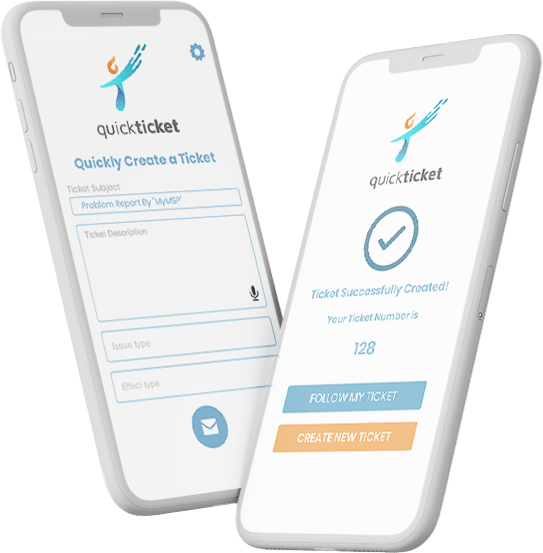IT tickets are records of tasks that your IT support team executes or should execute. Your support team can use these records to fix user queries, run the technology part of your company, and resolve arising issues.
Often, tickets represent a wide range of activities and tasks, based on what your support representatives are focusing on, and the type of your IT setting. IT tickets are also known as trouble tickets, service requests, or support cases. Here are some of the things you should know about IT tickets.
Importance of IT tickets for Your Organization
IT tickets maintain a record of support activities and operations that may happen. Doing so guarantees the seamless running of your IT environment. Tickets are usually recorded in an IT service management system. Here, they are classified, regulated, and updated as resolving of the issues takes place.
IT support desks leverage tickets to pick up and document interactions with users. Representatives in the operations department use tickets to identify technical matters that they should address. The IT management department leverages tickets to determine their team’s workload, make resourcing resolutions, and promote vendor partnerships.

Effective management of IT tickets is crucial in ensuring that your business gets full value from your IT investments. Regardless of the ticketing system you choose or its operation, managing it appropriately ensures it is assisting and not frustrating your customer support team.
With an efficient system, your team will support customers fast, professionally, and efficiently. Here are some IT ticket tips and best practices entrepreneurs should consider adopting.
Understand Your Company’s Priorities
You can use IT tickets to manage customer support requests and the internal needs of the company. Team members in the support department should be in a position to determine tickets that require immediate action.
Prioritizing tickets allows the support team to organize their workload. IT tickets can vary from tasks that drive daily activities as they arise or long-term product or organization initiatives. You can prioritize tickets depending on the number of people affected, how common the issue is, or its impact on revenue.
Remember, the prioritization route you take depends on your team and the company's current needs. To make sure you prioritize tickets accordingly, consider reviewing previous tickets, seek guidance from the management, and involve other stakeholders.
Maintain Continuous Communication
Strive to convince your customers that they are your priority. When dealing with numerous IT tickets, some users may feel neglected even when their tickets are still on the waiting line as you work on high-priority tasks.
To eliminate this feeling, you want to adopt a robust communication strategy. Reach out to all customers who have presented a ticket even when you do not have a clear answer to their requests. Assure them that your team is working hard to resolve the issue.
Have Records of Previous IT Tickets
Ensure your team can easily access a database of previous problems to stop them from spending a long time on repeat issues. Should your team encounter a challenge they have handled previously, determining how its solution helps them fix the current problem fast. Further, tracking previous IT tickets helps you and your team determines common issues that may need prioritization. A robust ticketing platform should leverage analytics to determine how prevalent an issue is for different users.
Use IT Tickets Targeting Suitably
While the tagging functionality in IT tickets is crucial, many support teams tend to underutilize it. Tags are essential when it comes to including context to IT tickets. They can help support agents in determining and organizing support queries and understanding factors that trigger customer trends. Tags are also ideal in customizing and managing agent workflows. To maximize the tagging feature, you need to ensure the tags are clear, precise, consistent, and well-structured.
Configure and Track Ticket Status
IT tickets management systems allow monitoring of the ticket progress and viewing of updates from a centralized platform. Ensure each ticket is allocated to the appropriate status. Failure to do so could result in multiple challenges. For instance, non-responded to tickets, poorly configured priorities, agents duplicating solutions, and requests getting neglected or lost. Such challenges will not only confuse your team members but will also frustrate your customers.
Finally
Train your support team appropriately. Whether your IT tickets system will be successful or not depends on your agent's ability to manage it. If you have just adopted ticketing software, training is crucial. Proper training allows agents to use the support desk system, and its features effectively. Your customers will also enjoy a seamless experience.